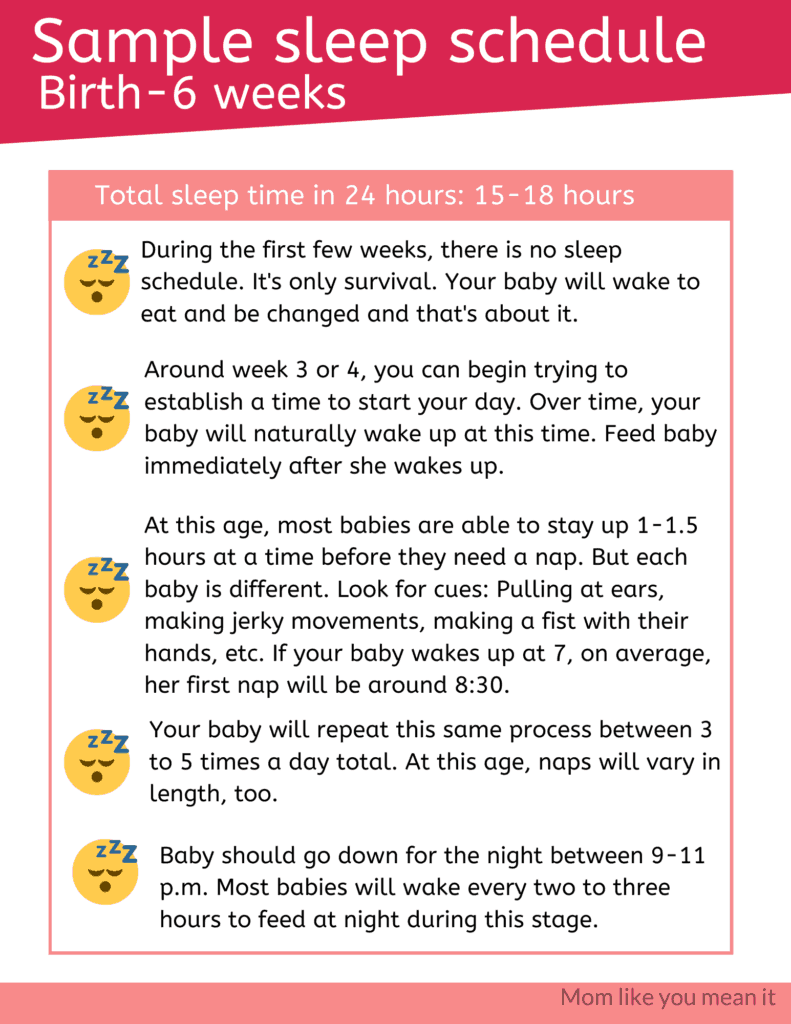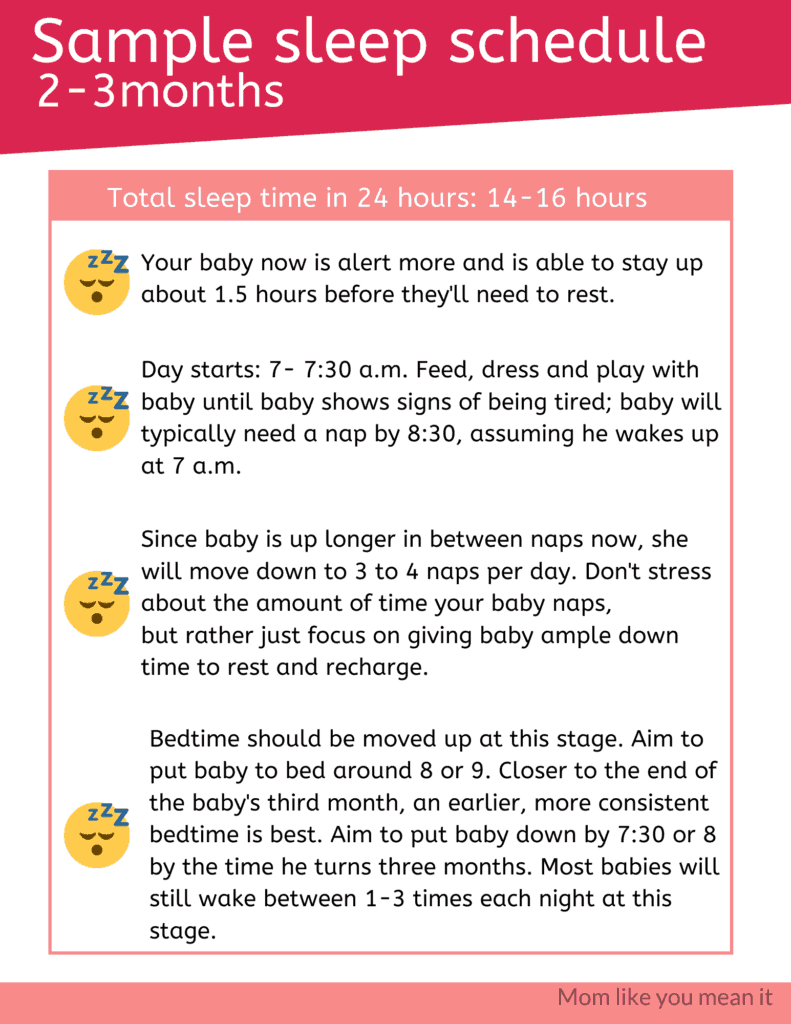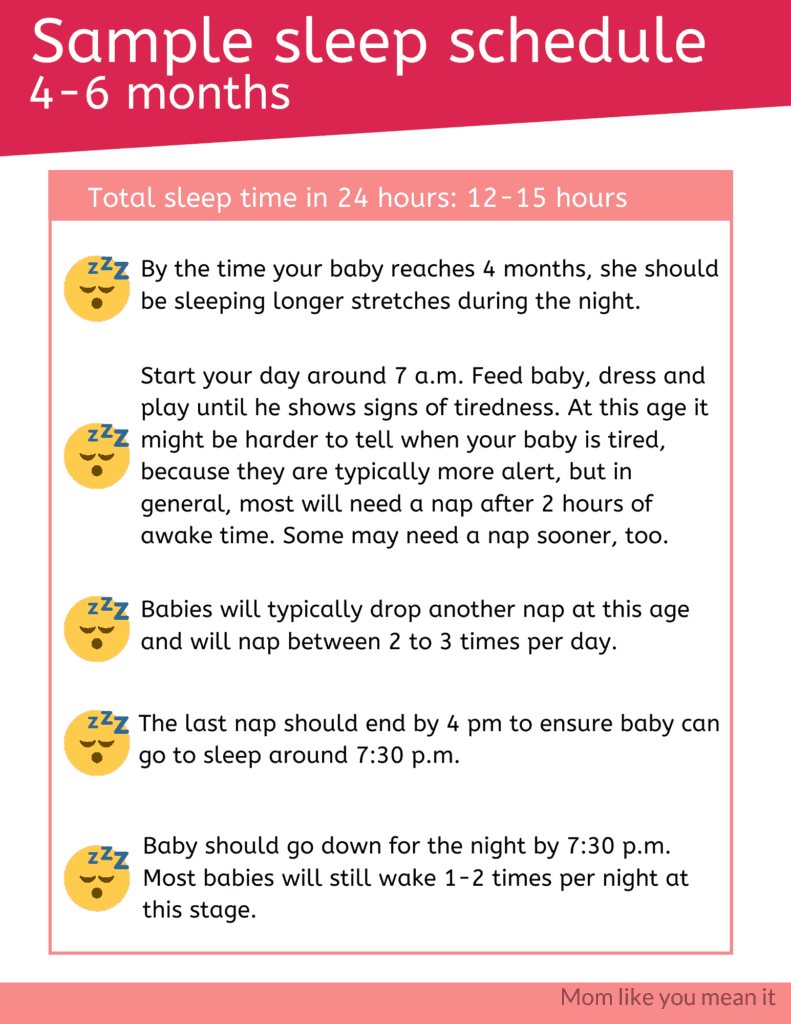The dreaded witching hour is a period of time each night in which your baby is fussy.
You’ll know you’ve got a witching hour baby on your hands because during this time, no matter what you do, your baby’s fussiness won’t stop.
If you’ve got a cranky babe on your hands, keep reading, mama– it doesn’t have to always be like this. There are several ways you can work to banish the night-time blues and get rid of your baby’s witching hour once and for all.

This post may contain affiliate links. Read my policy here.
What causes the witching hour baby?

Being a baby is hard work! Newborns go from a cozy little environment with constant sound and movement to a bright world where everything they’ve come to understand is suddenly flipped upside down.
Your witching hour baby might be overtired
An overtired newborn is largely to blame for unusually fussy behavior, and that’s why sticking to a sleep and nap schedule will work wonders to end your baby’s witching hour. Below, I’ve included 3 sample sleeping schedules you may want to follow. You can also follow newborn wake windows to help prevent baby from becoming too tired.
Your newborn might be hungry
There’s a couple theories as to why babies tend to be more hungry at night– some research indicates that milk flow tends to be slower at night, frustrating some babies and making them want to nurse more.
Other research points to the fact that babies are trying to get as full as possible for their upcoming slumber.
It’s not completely clear, but what is clear is the fact that your newborn will probably want to cluster feed at night. Cluster feeding is when babies will feed over and over again during a small window of time; typically at night. If you’re interested, I have a full post on how to handle a cluster feeding baby.
Your baby might be overstimulated
To say babies are easily overwhelmed would be an understatement. Everything, and I mean, every little thing, is new to a baby. So by the end of the day, you can rest assured your baby’s had it in the growth and development department.
Your infant might be more sensitive
Some babies come into this world as cool as a cucumber, and others are upset by everything. How well your baby handles the evening hours is related to their temperament.
So you can expect to have less of a hard time each evening if you’ve got a pretty mello kid.
When is the baby witching hour?
The witching hour, or hours rather, is slightly different for each baby, but typically, babies experience a particularly fussy time during the hours of 5 to 11 at night.
When do babies outgrow the witching hour?
If you’re experiencing the newborn witching hour first the first time tonight, you’re likely wondering: how long does the witching hour last?!
For most babies, the witching hour doesn’t rear its ugly head until around week two. So if you’ve got a five-day-old baby that “never cries,” don’t hedge your bets, just yet.
Most parents report the witching hour peaking around 6 weeks and then completely dissipating when their baby is 3 months.
Some babies, that typically don’t sleep well during nights or naps, will experience this phenomenon longer than 3 months.
Don’t worry, mama– the newborn witching hour is just a phase for most babies.
Witching hour vs. colic
When my baby first started experiencing witching hour symptoms, I wondered if it was just classic night-time fussy time or colic.
By definition, a baby has colic if they follow the rule of three’s: Cry for three hours a day, at least three days a week and for longer than three weeks.
Of course, many times, babies with colic will cry during the typical witching hours, so sometimes parents find it hard to tell a difference.
Colic, like the witching hour, also starts around 2 weeks, peaks at 6 weeks and typically ends by the time a baby is 2 or 3 months old.
Perhaps the biggest differentiator between the two terms is the fact that babies that truly have colic tend to cry with much intensity for hours on end, whereas babies experiencing the newborn witching hour may cry here and there, but in general, will just be “fussy.”
Keep in mind that true colic tends to be present in about 10-15% of babies, whereas most babies will experience a fussy period during the evenings.
Common signs your baby is experiencing the newborn witching hour
If your baby experiences some of the following symptoms they may be in the middle of the witching hour:
- Unusually fussy at night (typically during 5-11 p.m.)
- Wants to breastfeed constantly
- Is unable to calm down no matter what you do
It’s also important to note that these symptoms may be mild or extreme based on your baby’s temperament.
If your baby is experiencing these signs and symptoms read on for advice on how to end your baby’s witching hour for good!
Baby witching hour tips for parents

If your newborn is fussy at night, and won’t sleep it’s likely due to the fact that they’re overtired.
Figuring out a good sleep routine for your infant is so important, and many parents fail to realize the importance of the schedule. A word of caution though, the world schedule should be used loosely with an infant.
I’m a firm believer that babies need ample sleep throughout the night, a consistent bedtime and enough rest during the day, but I also know that baby’s needs change almost weekly, if not daily.
Use these sample sleep schedules as a guide to get you on track based on what works best for you and your baby. Modify the schedule when you notice your baby is alert more during the day, is fighting the second or third nap, etc.
But don’t make the mistake I did at first and think you can fit your baby into a schedule that works best for you. Spoiler alert: Your baby’s sleep schedule comes first; you’ll adopt this principle the first time you spend 3 hours getting your overtired baby down for the night!
Establishing a good baseline sleep/nap schedule for my daughter was the #1 thing that turned our witching hour routine around!
Birth to six weeks sleep schedule to stop the newborn witching hour
The term “schedule” is used very loosely during the first six weeks of your babies life. The most important thing at this stage is to quickly learn your baby’s sleep cues so that you can put him down before he gets overtired.
Common signs your baby is tired:
- Making jerky movements with arms and legs
- Pulling at ears
- Making a fist with their hands
- Losing interest in toys
Common signs your baby is overtired:
- Rubbing eyes
- Yawning
- Overly fussy or crying uncontrollably
If your baby is already exhibiting overtired symptoms, don’t panic, just quickly get her down! Swaddling my baby worked wonders when she was overtired because she was instantly soothed.

2 to 3 months sleep schedule to end the witching hour
By two to three months your baby is more alert and up for longer periods during the day. This is a great age to start develop a sleep schedule.
Keep in mind that your baby’s schedule will change weekly, if not daily, so the schedule shouldn’t be followed exactly, but rather should be used to develop a good routine.
By 2 months you can begin trying to establish a bedtime with your baby, rather than just the constant eat, poop, sleep routine your newborn had.
Start by attempting to put your baby down for the night around 9 p.m. Bear in mind your baby will still wake around 1 to 3 times each night.
You can also work to create sleep cues to help your baby understand that it’s time for bedtime. A warm bath, baby massage, nursing and singing or reading books works well.
Good news: by the end of your baby’s third month you can begin to establish an earlier bedtime that works wonders towards ending the evening fussy period!
Related: an easy schedule for your 3 month old

4 to 6 months sleep schedule to stop the baby witching hour
By 4 months most babies’ sleep patterns become a little more predictable.
At this stage you can begin to work towards an early bedtime (around 7 or 7:30), which works wonders to help with your baby getting overtired and subsequently launching into the witching hour.
Your baby will likely sleep less during the day at this point, too, making their nighttime sleep very important.
Note: By this age, most babies will have outgrown the witching hour phase, but some may still be going through it. If your 4 month old seems to still struggle with this stage, focus on fixing their sleep issues, pronto!
Related: No tears sleep training for babies aged 4 months and up

Other newborn witching hour tips
If you’ve worked hard to establish a good sleep routine with your baby for a few weeks and you find that your baby is still going through the dreaded baby twilight hours, try these newborn witching hour tips:
Cluster feed your baby
Newborns are hungrier at night. Most babies will remedy this issue by wanting to feed constantly, hence the term, cluster feed.
Cluster feeding in when your baby will nurse for a few minutes, take a brief brake, nurse, rest, and so on.
Do not, and I will repeat this, do not go worrying that this behavior is a result of your milk supply being too low. It is not. Newborn cluster feeding is just what some infants do.
There’s not a ton of evidence to support exactly why babies cluster feed. But what we do know is it’s not tied to your milk supply.
Milk slow can be slower at night time and babies do associate nursing with comfort, so likely those two reasons are why some babies tend to want to cluster feed at night.
Note: You may be tempted to take a break during your baby’s cluster feeding extravaganza and supplement with a bottle.
Just keep in mind that any time you supplement with bottle, your milk supply will be negatively impacted. Breastfeeding is strictly a supply and demand principle.
Comfort baby
Sometimes the answer to dealing with a cranky babe is to just soothe them. Babies love to be in constant movement, as it reminds them of the womb.
Give the baby swing a try, or put baby in the bouncer. If those don’t work, try baby wearing! Baby-wearing is an amazing way to calm your baby down, plus it lets you get stuff done around the house!
Swaddling baby also works wonders! You can just use a swaddling blanket or a sleep sack to accomplish this.
Give baby a break
Newborns get overstimulated quite easily. Taking baby to a quiet dark room allows them to decompress and chill out. It’s much easier to calm down a baby when there’s less distractions vying for their attention.
Closing thoughts on curing the witching hour baby
A cranky, fussy infant is no fun, but it happens! The best way to get through this period is to understand that most babies go through this phase and that it will get better. Focus on developing a consistent sleep routine for your baby first and foremost. If that still isn’t helping try cluster feeding or comforting your baby.


Leave a Reply